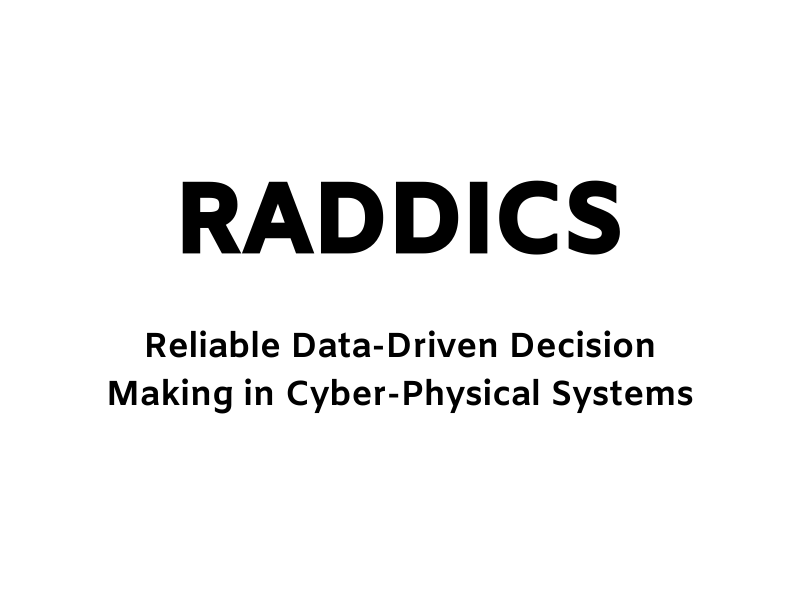
RADDICS
Reliable Data-Driven Decision Making in Cyber-Physical Systems
Julie Arteza
01 January 2019
31 December 2023
EC funded project
This ERC project pushes the boundary of reliable data-driven decision making in cyber-physical systems (CPS), by bridging reinforcement learning (RL), nonparametric estimation and robust optimization. RL is a powerful abstraction of decision making under uncertainty and has witnessed dramatic recent breakthroughs. Most of these successes have been in games such as Go - well specified, closed environments that - given enough computing power - can be extensively simulated and explored. In real-world CPS, however, accurate simulations are rarely available, and exploration in these applications is a highly dangerous proposition.
We strive to rethink Reinforcement Learning from the perspective of reliability and robustness required by real-world applications. We build on our recent breakthrough result on safe Bayesian optimization (SAFE-OPT): The approach allows - for the first time - to identify provably near-optimal policies in episodic RL tasks, while guaranteeing under some regularity assumptions that with high probability no unsafe states are visited - even if the set of safe parameter values is a priori unknown.
While extremely promising, this result has several fundamental limitations, which we seek to overcome in this ERC project. To this end we will (1) go beyond low-dimensional Gaussian process models and towards much richer deep Bayesian models; (2) go beyond episodic tasks, by explicitly reasoning about the dynamics and employing ideas from robust control theory and (3) tackle bootstrapping of safe initial policies by bridging simulations and real-world experiments via multi-fidelity Bayesian optimization, and by pursuing safe active imitation learning.
Our research is motivated by three real-world CPS applications, which we pursue in interdisciplinary collaboration: Safe exploration of and with robotic platforms; tuning the energy efficiency of photovoltaic powerplants and safely optimizing the performance of a Free Electron Laser.
Category:
- Identity, behaviour, ethics and Privacy
Vertical Category:
- ICT
Resources for EU Research
Resources for SMEs
News & Events
Reports
Cyberwatching.eu has received funding from the European Union’s Horizon 2020 research and innovation programme under grant agreement No 740129. The content of this website does not represent the opinion of the European Commission, and the European Commission is not responsible for any use that might be made of such content. Privacy Policy | Disclaimer / Terms and Conditions of Use

